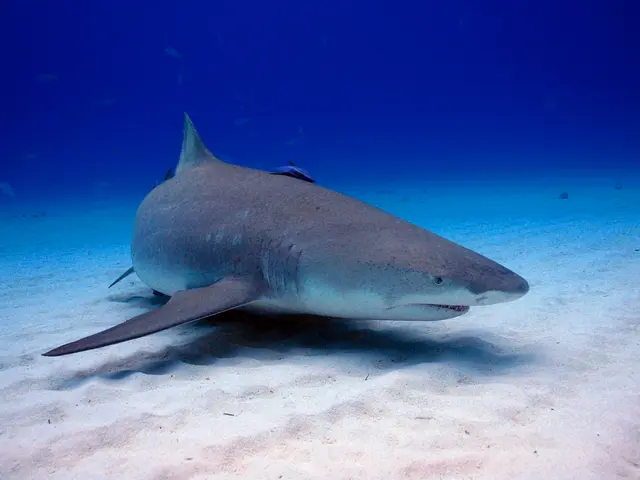Bundesforce preserves confidentiality regarding Nord Stream 2 project
In response to growing geopolitical tensions and the potential risks of sabotage, a regular inspection and enhanced security regime is being implemented in the Baltic Sea's exclusive economic zones, with a focus on protecting critical undersea infrastructure like the Nord Stream 2 pipeline.
The German military is at the forefront of this initiative, closely monitoring the security and military political situation, including developments in German coastal waters, in relation to the Nord Stream 2 pipeline. The German Navy is also actively observing the changing security situation in the Baltic Sea, keeping a close eye on the activities of the Russian Navy and the development of the North and Baltic Seas.
Key elements of this regime include increased naval patrols along pipeline routes, the use of advanced underwater detection systems such as sonar and AI-powered anomaly detection, establishment of restricted maritime zones around critical infrastructure points, regular underwater inspections with specialized Remotely Operated Vehicles (ROVs), deployment of physical barriers and sensors at vulnerable underwater access points, improved coordination between civilian maritime authorities and military assets, and the development of rapid-response protocols and international intelligence-sharing frameworks for infrastructure protection.
These security enhancements represent a substantial multi-domain and multinational effort, with an estimated €500 million invested in protecting European underwater energy infrastructure since the attacks. Security planners are also working on comprehensive longer-term strategies, such as vulnerability mapping, specialized maritime protection units, integration of space-based monitoring, and research into automated underwater anomaly detection, to ensure continued protection and resilience against sabotage and underwater warfare threats.
Undersea cables, including those associated with the Nord Stream 2 pipeline, are considered a component of hybrid underwater warfare. Every maintenance work on the pipeline by Russian crews could potentially create installations with military purposes that threaten NATO submarines or communication lines. Researchers at the Institute for Security Policy at the University of Kiel have warned that the gas pipeline could be an ideal tool for Russia's potential underwater warfare against NATO.
These measures underscore the importance of maintaining the security and integrity of undersea infrastructure in the face of potential threats. As geopolitical tensions continue to rise, it is likely that these enhanced security measures will remain a priority for European nations and NATO in the years to come.
[1] Source: Institute for Security Policy at the University of Kiel, 2023.
Read also:
- Massive 8.8 earthquake hits off the coast of Russia's Kamchatka Peninsula, prompting Japan to issue a tsunami alert.
- Court petitions to reverse established decision on same-sex marriage legalization
- Proposed Standardization of Food Labeling Laws Among Member States by the Commission
- Experimenting with Merz's Germany has stretched into an extended period of time, resembling a numerous three-month duration.






